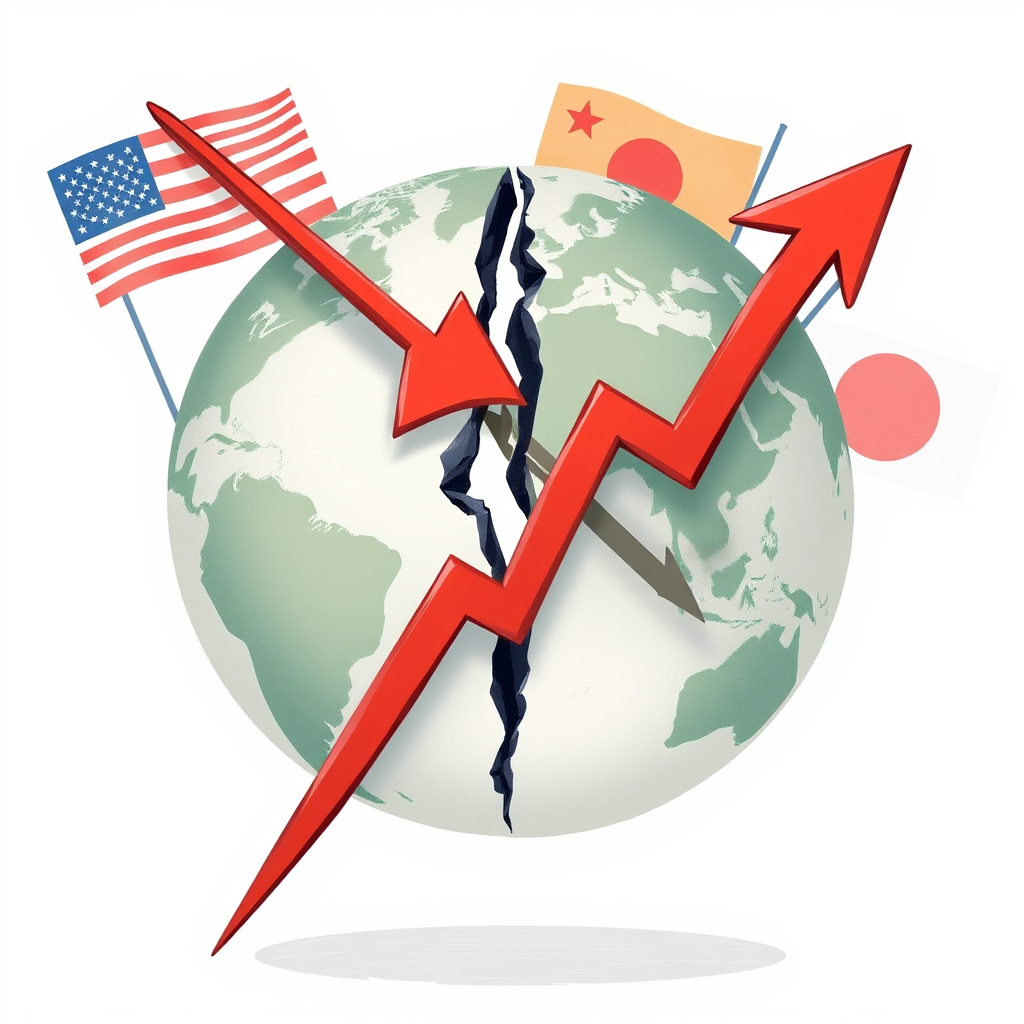Trump Tariffs Trigger Market Panic: “Black Monday” Fears

Global markets are bracing for potential turmoil following a sharp sell-off triggered by new tariffs imposed by US President Donald Trump. CNBC’s Jim Cramer has warned of a possible market crash reminiscent of “Black Monday” in 1987, fueled by fears that the tariffs will exacerbate inflation and stifle economic growth. The Dow Jones Industrial Average plummeted 2,231 points on April 3-4, 2025, marking a brutal two-day decline.
Cramer’s assessment hinges on President Trump’s next move. He suggests that a failure to address the damage caused by the tariffs, or a lack of incentive for compliant nations and companies, could lead to a repeat of the 1987 scenario – a three-day decline culminating in a 22 percent drop on a single Monday. He anticipates a clear indication of the market’s trajectory by next Monday.
The immediate impact has been significant. Since the tariffs were unveiled on Wednesday, the S&P 500 has lost $5 trillion in market value, with investors seeking refuge in government bonds. The Nasdaq has officially entered bear market territory, falling over 22.7 percent from its December 16th high. Both the Dow and the pan-European STOXX 600 have entered correction territory. The VIX, a measure of market volatility, jumped to 45.31, its highest level since April 2020.
The tariffs have sparked international condemnation and threats of retaliation. China announced reciprocal tariffs of 34 percent on American goods, confirming investor fears of a full-blown trade war and a potential global recession. Japan’s Prime Minister Shigeru Ishiba described the situation as a “national crisis” as Tokyo’s stock market faces its worst week in years.
Investment bank JP Morgan has increased its estimate for a global recession by year-end to 60 percent, up from 40 percent. The White House has offered conflicting signals, with President Trump suggesting the tariffs are a negotiating tactic.
This situation is deeply concerning. While tariffs can be used as leverage in trade negotiations, the scale and scope of these measures, coupled with the swift retaliatory actions, pose a genuine threat to global economic stability. The potential for a self-perpetuating cycle of escalating tariffs and economic decline is very real. The market’s reaction demonstrates a lack of confidence in the current trajectory, and a swift resolution – or at least a clear indication of a path towards de-escalation – is crucial to prevent further damage. The reliance on negotiation as a solution feels increasingly precarious given the current geopolitical climate and the potential for miscalculation.